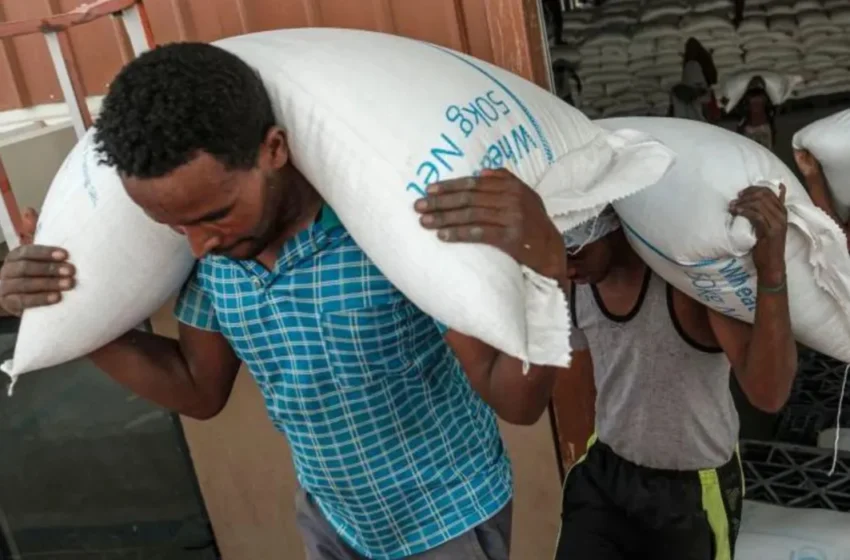
UN sounds alarm over funding crisis affecting 650,000 in Ethiopia
Supply shortages and funding for the UN World Food Programme relief procedures in Ethiopia will prevent lifesaving services for 650,000 malnourished ladies and infants on the last day of the month. “We are at the breaking point,” the agency explained.
Ethiopia needs urgent funding to continue providing food and nutrition support to 3.6 million “most vulnerable” Ethiopians, cautioned Zlatan Milisic, Country Director of the UN agency.
Around 10 million individual in Ethiopia are suffering from acute food insecurity. This comprises three million conflict and climatic disaster displaced persons. Malnutrition prevalence is extremely high,” he informed reporters in Geneva via videolink.
A scare is spreading about child wasting
Over four million pregnant, lactating women and young children require treatment of malnourishment in Ethiopia. Child wasting has crossed the 15 per cent emergency level in Somali, Oromia, Afar and Tigray states.
The WFP had aimed to reach two million mothers and children with lifesaving nutrition support in 2025 but has been compelled to reduce spending after it was only allotted half of what was obtained last year.
Tweet URL
“What is most important now is that our healthy foods are in short supply,”
Mr. Milisic said.
“So, we are suspending that programme unless something comes really quickly and we are searching and we are optimistic, but nothing has arrived yet.”.
During the initial three months of the year, WFP distributed food and nutrition assistance to over three million individuals. In addition to malnourished children, there were pregnant and lactating women.
Like other humanitarian crises that have been affected by budget reductions, the UN agency has cut food rations to most vulnerable groups. For the last 18 months this has translated into providing 60 per cent rations to the majority of the 800,000 refugees WFP feeds and 80 per cent rations to “displaced and food-insecure – some severely food-insecure – Ethiopians for the last nine months”, Mr. Milisic added.
Referring to access difficulties for humanitarians in Amhara region where there is reported ongoing conflict, the WFP official added that aid operations had been interrupted, jeopardizing relief commodities for over 500,000 individuals. “Car hijacking, threats and theft are increasing and are seriously endangering staff safety and affecting the delivery of lifesaving assistance,” he added.
The workplace atmosphere is hostile
Media reports suggest that conflict persists in the Oromia region, with escalating tensions in Tigray, where a civil war resulted in an estimated 500,000 deaths between 2020 and 2022 due to the war between the federal army and the Tigray People’s Liberation Front.
In spite of the precarious funding and security environment, WFP keeps giving daily school meals to 470,000 children monthly. Among them are 70,000 refugee children – conflict-affected and food-insecure zones the target of relief operations in northern Ethiopia.
WFP also assists communities to prepare and shield their livelihoods in drought-hit Oromia, Somali and Southern regions, reaching more than 200,000 individuals with early warning messages and cash transfers. The agency requires $222 million from September to support its agendas operating and to fulfill its purpose of 7.2 million people this year. “We have the staff, the logistics, the capacities in place, partners, our personnel; what we don’t have are the resources to respond and the scope that this moment requires,” said Mr. Milisic.


